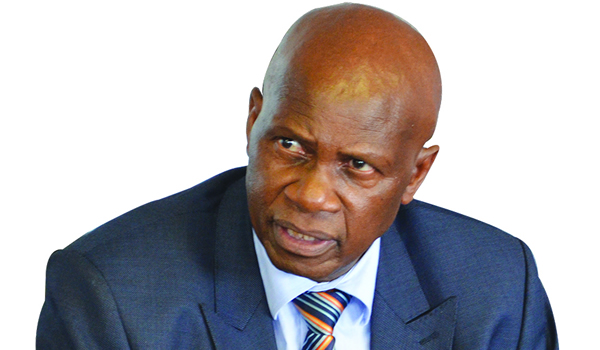By Sofia Mapuranga
Zimbabwe’s combined domestic and external debt stands at $9, 909 billion, Finance and Economic Development minister, Patrick Chinamasa, today told journalists in Harare.

“Zimbabwe is saddled with a huge debt overhang, which has become a major impediment to the country’s socio-economic transformation agenda. This debt overhang is seriously stifling the country’s ability to mobilise new financing,” said Chinamasa.
The total external debt stands at $8.915 billion while the domestic debt is pegged at $994 million, he added.
Zimbabwe’s outstanding public external debt, including the Reserve Bank of Zimbabwe’s, stood at $6,964 billion as at the end of December 2013, according to Chinamasa.
“This represents 54 percent of the Gross Domestic Product in nominal terms,” he said.
“Of the total public and publicly guaranteed external debt of $6, 964 billion, $5, 012 billion (72 percent) was public debt, $1,356 billion (20 percent) was publicly guaranteed debt and $596 million (8 percent) was RBZ debt,” he added.
He said the debt had ballooned because the country had incurred a penalty interest of $1, 1 billion from accumulated arrears to its debtors amounting to $5, 6 billion.
“Of the total bilateral debt, as at end December 2013, $3, 0.9 billion is owed to Paris Club creditors and $692 million to the non- Paris Club including China to which the country owes $666 million,” said Chinamasa.
He said Zimbabwe owed $2,36 billion to the five major Paris Club creditors, namely Germany, France, United Kingdom, Japan and the United States of America (USA).
Germany is owed $85m, France ($534m), United Kingdom ($388m), Japan ($348m) and USA ($243m), said Chinamasa.
Zimbabwe owes the World Bank $1 billion, the AfDB ($612 m), European Investment Bank (EIB) ($280 m) and the IMF ($121 m)”
Chinamasa said the solution to the country’s debt lay in the ability by Zimbabwe to engage with international financial institutions.
“Zimbabwe’s huge debt overhang is the major impediment to the country’s ability to mobilise new financing from international financial institutions and bilateral creditors,” said Chinamasa.
“It is critical for Zimbabwe to be in good standing with international financial institutions such as the African Development Bank (AfDB), the International Monetary Fund (IMF), China Development Bank (CDB) and… the World Bank,” he added.
Chinamasa said there was need for Zimbabwe to pursue consistent policies in order to demonstrate commitment to revamping the economy. “If we are doing all the wrong things—silly things—then, of course, we cannot be in good standing
“What we do is public knowledge. The decisions we take are public knowledge. It is important that we talk the same language so that we can get out of our situation,” he said.
He announced a new system for organisations and parastatals intending to borrow both locally and internationally so as to reduce debt accruing to government.
Government will only be a guarantor of loans if State enterprises go through responsible line ministries and seek approval.
“Any borrowing by the local authority, for example, must first get the authority of the line minister, in this case the minister of Local Government who then approaches the finance ministry and we sign jointly as guarantors of the loan.”
He said it was important to adopt the new strategy as it enhanced transparency and accountability, and enabled government to monitor local authorities’ performance.
“The line minister must know what is happening within the purview of his ministry. Together with the line minister, we first have to discuss whether it is a good decision or not to borrow and we understand whether that loan is necessary or not,” he said.
He said through this process, the borrowers had to justify how they would repay the loans based on their annual income.
“They have to tell us how much from the rates collected from the ratepayers they are going to use to pay back the loans.
“It helps us to look at the operations of the local authorities, its balance sheets, its income and expenditure and give us an idea whether that local authority is being properly managed or not.” The Zimbabwean






